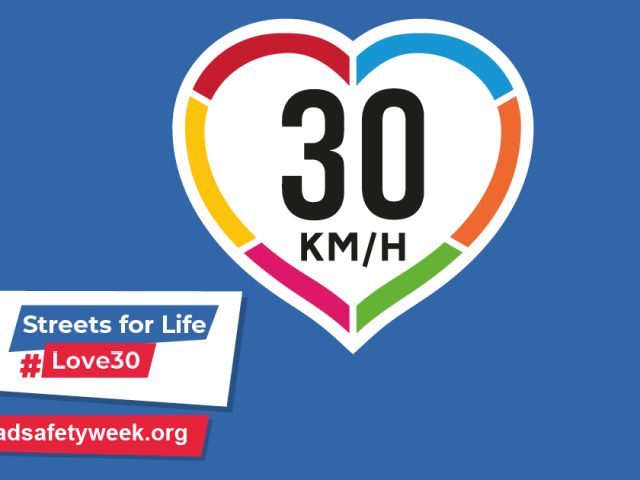UN Road Safety Week 2015 – ‘Save Kids Lives’ – What the EU can do
ETSC is pleased to support the third annual UN Global Road Safety Week which runs from 4-10 May.
This year’s events and actions are all about highlighting the plight of children on the world’s roads and generating action to better ensure their safety.
How safe are European roads for children?
Last year ETSC published new research into children killed in cars in the EU showing that, in 2012, at least 319 child car occupants aged 0 to 14 were killed. Our soon-to-be published report and data on pedestrian and cyclist safety will show that at least 236 child pedestrians and 76 child cyclists were killed in 2013. Many others are seriously injured.
Clearly the EU and member states can do more to create a safe environment for children on our roads.
ETSC’s recommendations include:
- Encouraging EU member states to adopt speed limits of maximum 30km/h in residential areas and areas with high levels of pedestrians and cyclists;
- Supporting the introduction of Intelligent Speed Assistance (ISA) technology in new vehicles, which has the potential to also reduce risks to pedestrians and cyclists including children;
- Promoting urban mobility planning built around a hierarchy of priority groups based on safety, sustainability and vulnerability. Pedestrians should be at the top of the hierarchy, followed by cycling and public transport;
- Increasing enforcement of legislation on use of seat belts and child restraints;
- Promoting the use of alcohol interlocks in professional vehicles used to carry children. These are already mandatory for school buses in Finland and France;
- Encouraging use of rear-facing child seats until the age of four years old. Current UNECE rules, applied in the EU, only require a rear-facing seat until 15 months;
- Conducting awareness campaigns to educate parents about the importance of child restraints (including the new ‘i-Size’ system) and proper fitment;
- Increasing the affordability of child restraints by offering them with reduced VAT, as permitted under EU rules on VAT on ‘essential products’;
To sign the UN’s #savekidslives pledge, go to www.savekidslives2015.org








